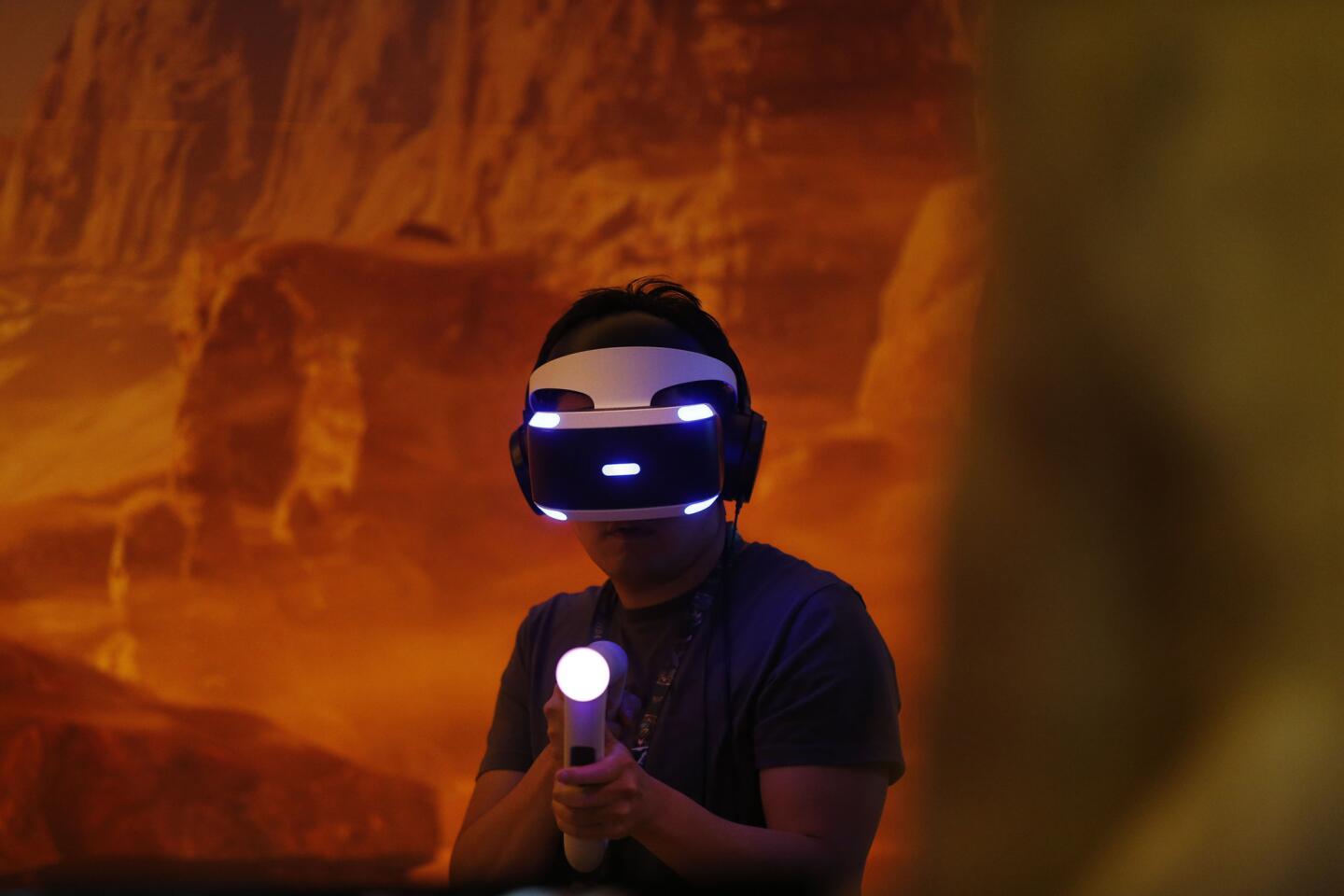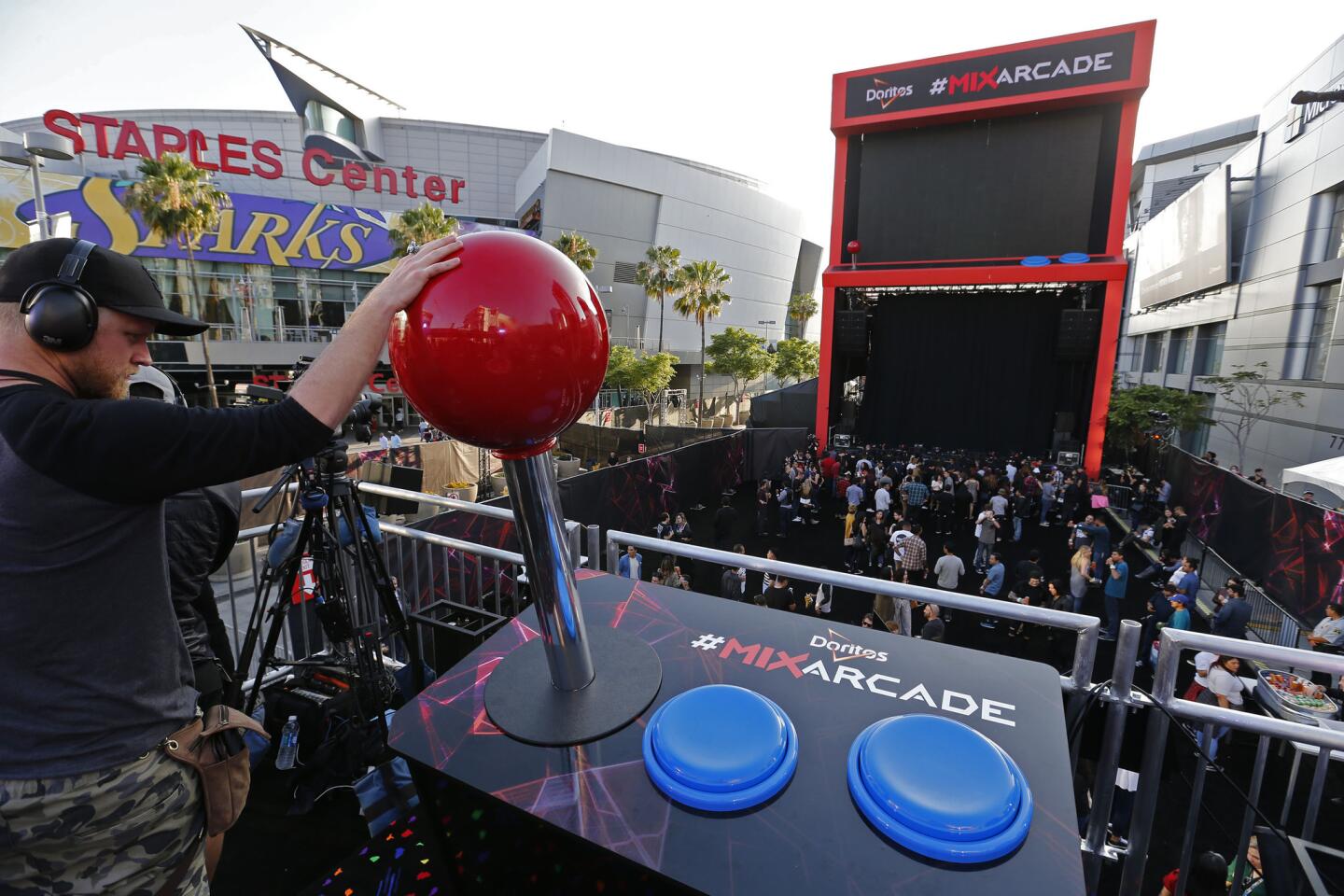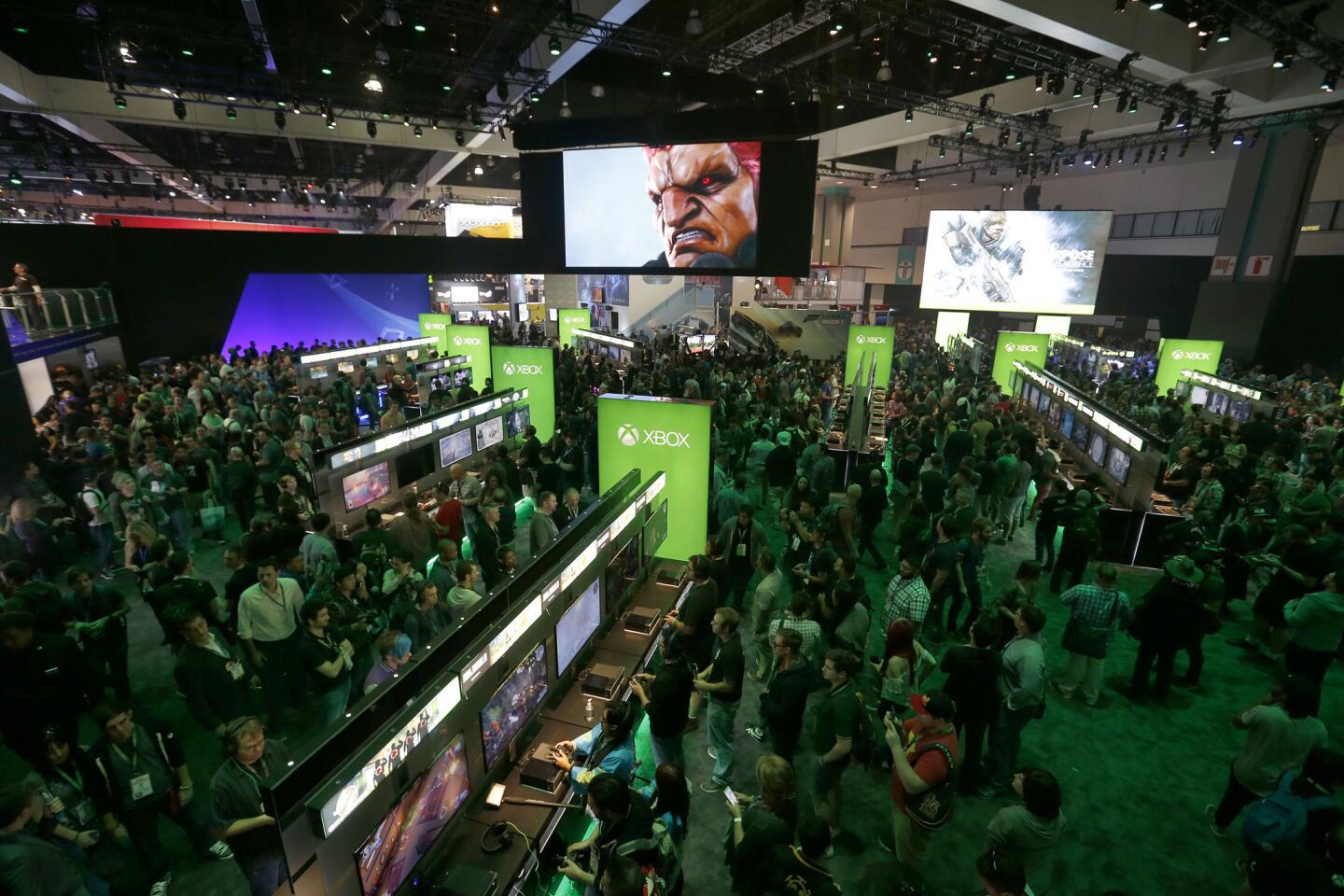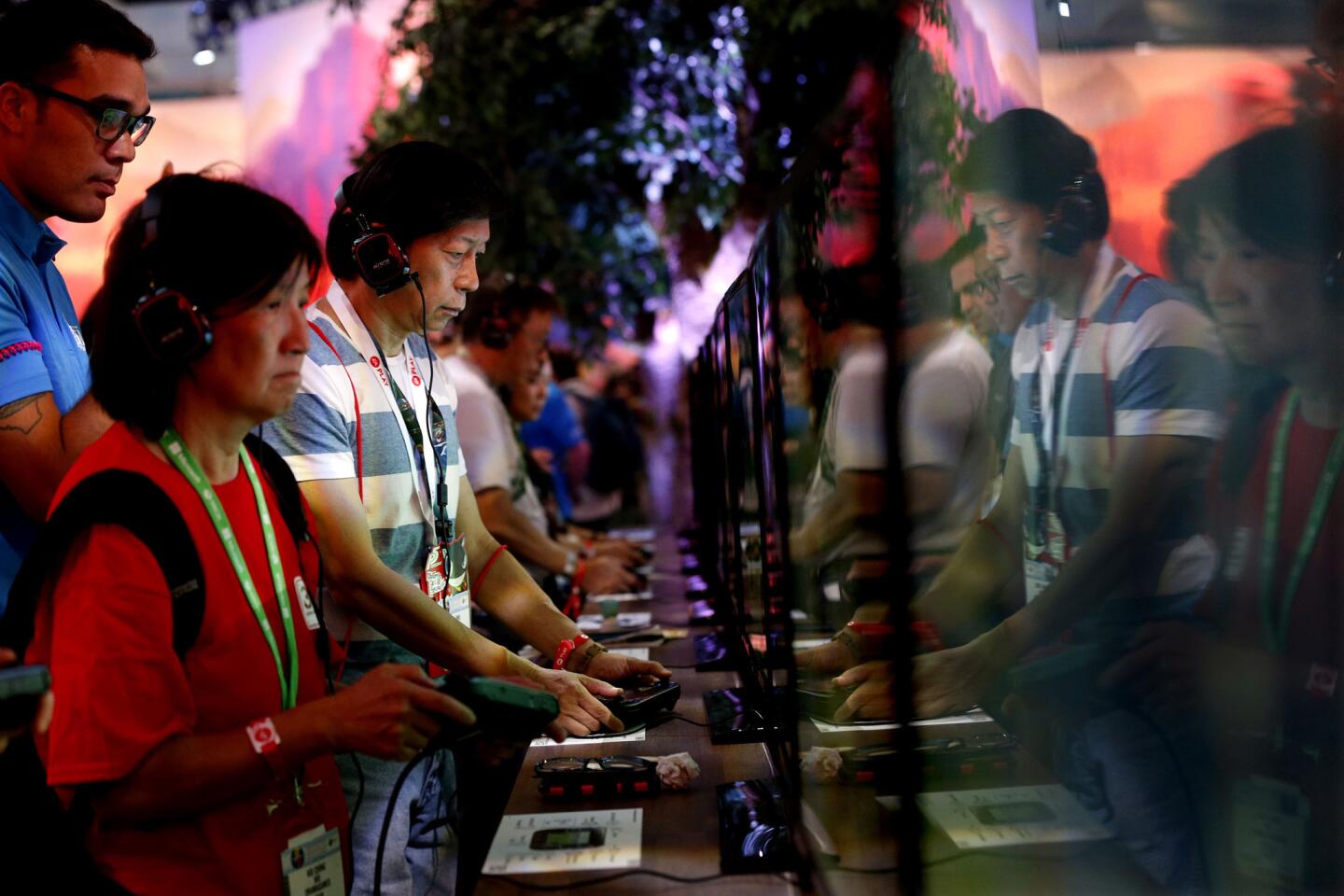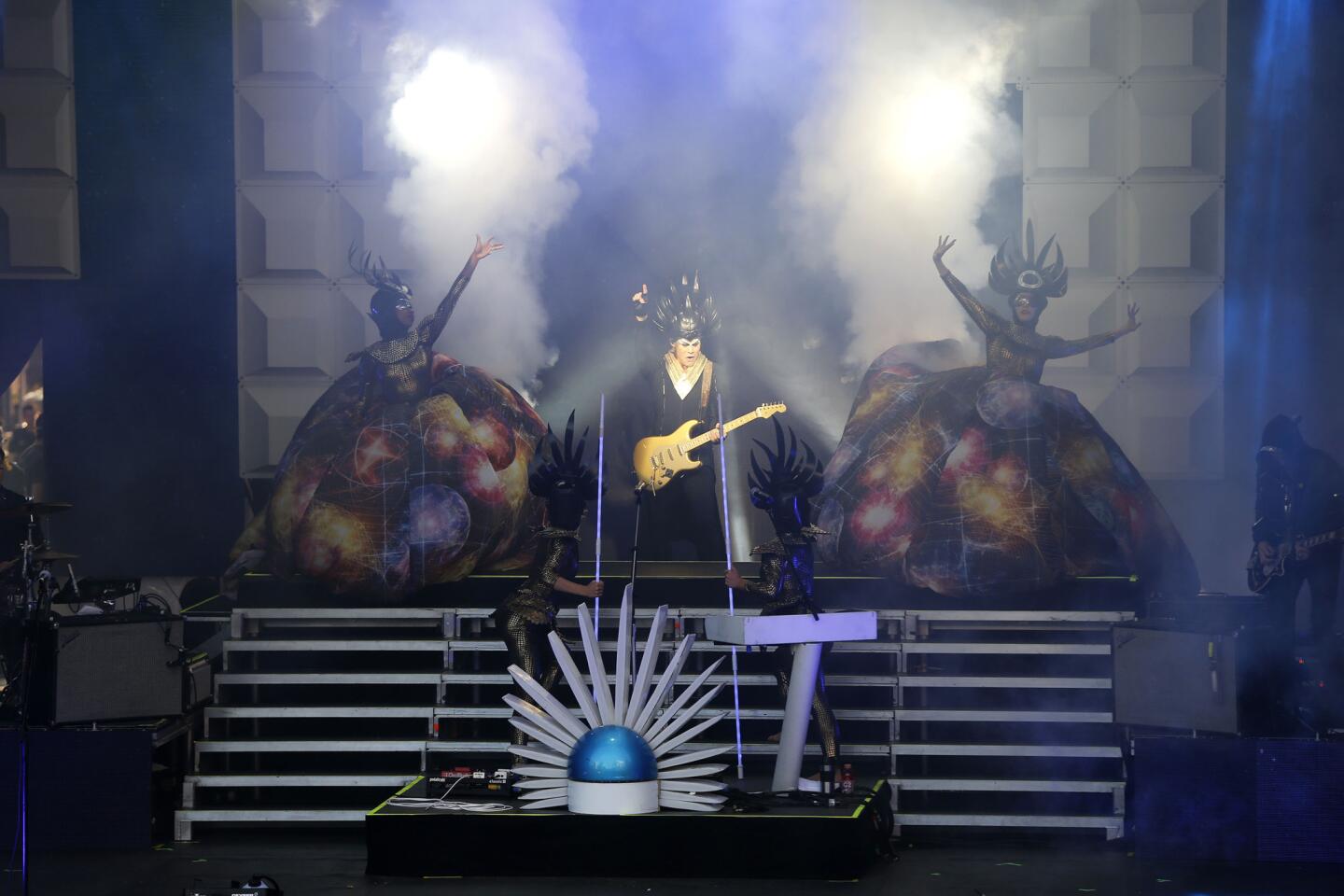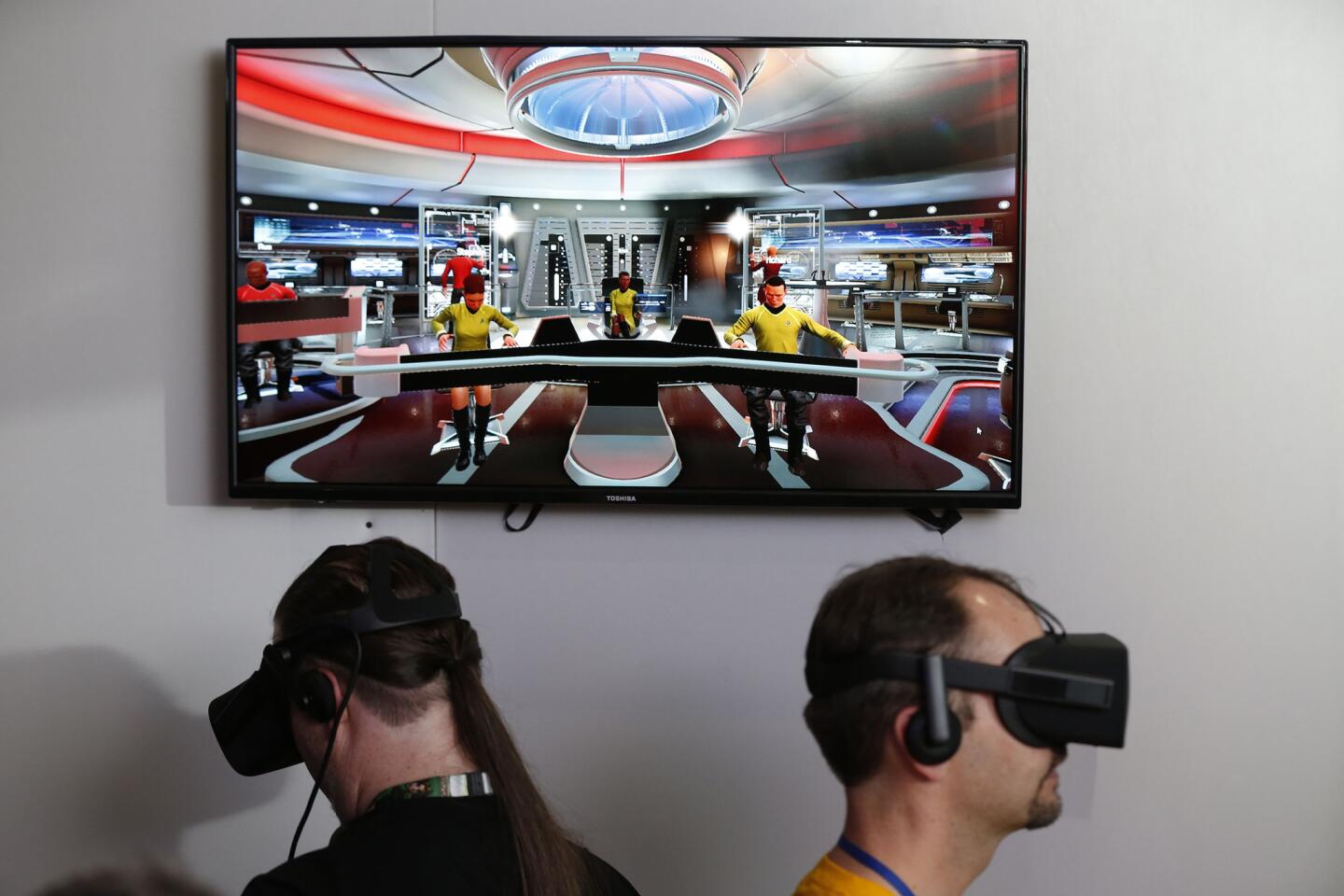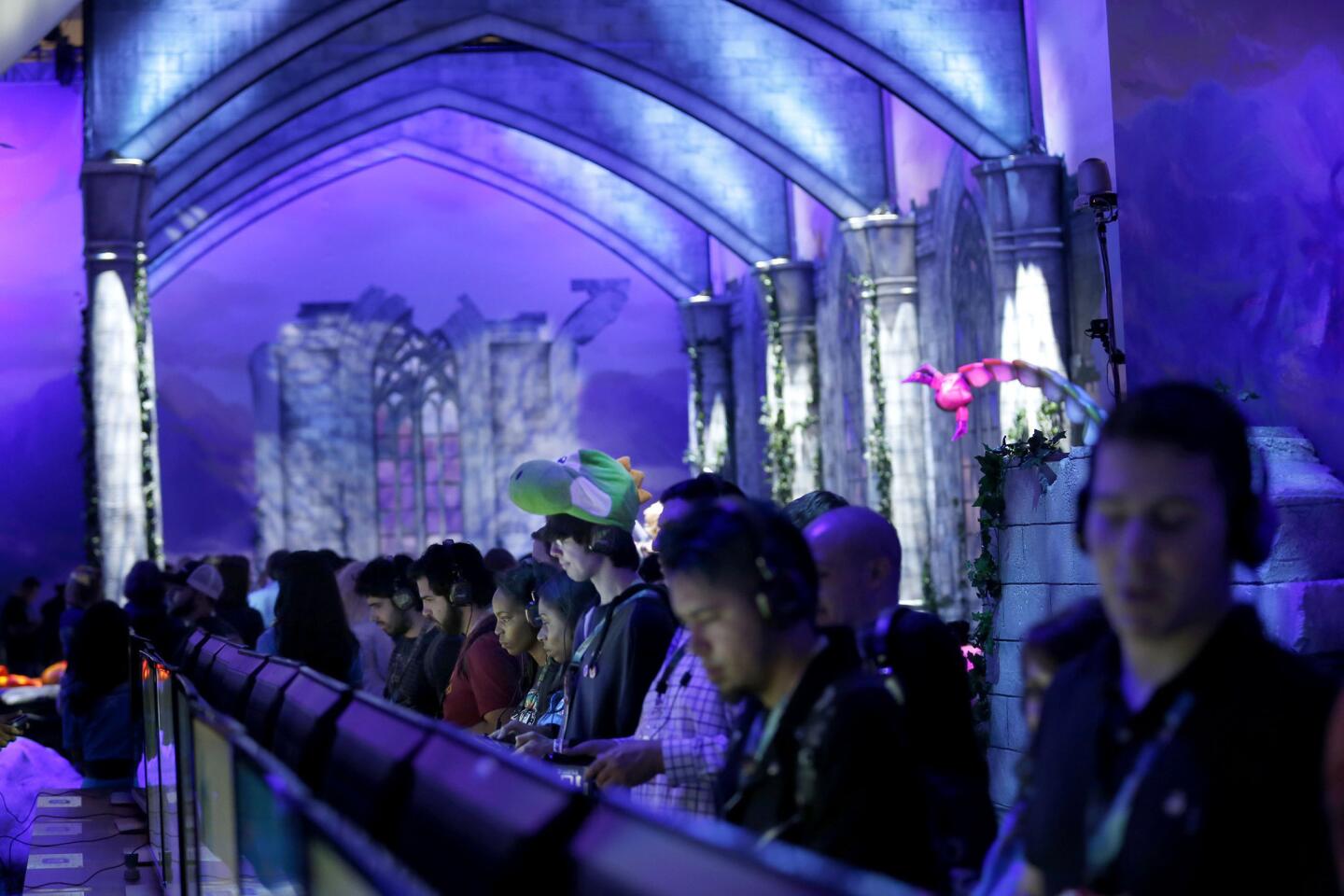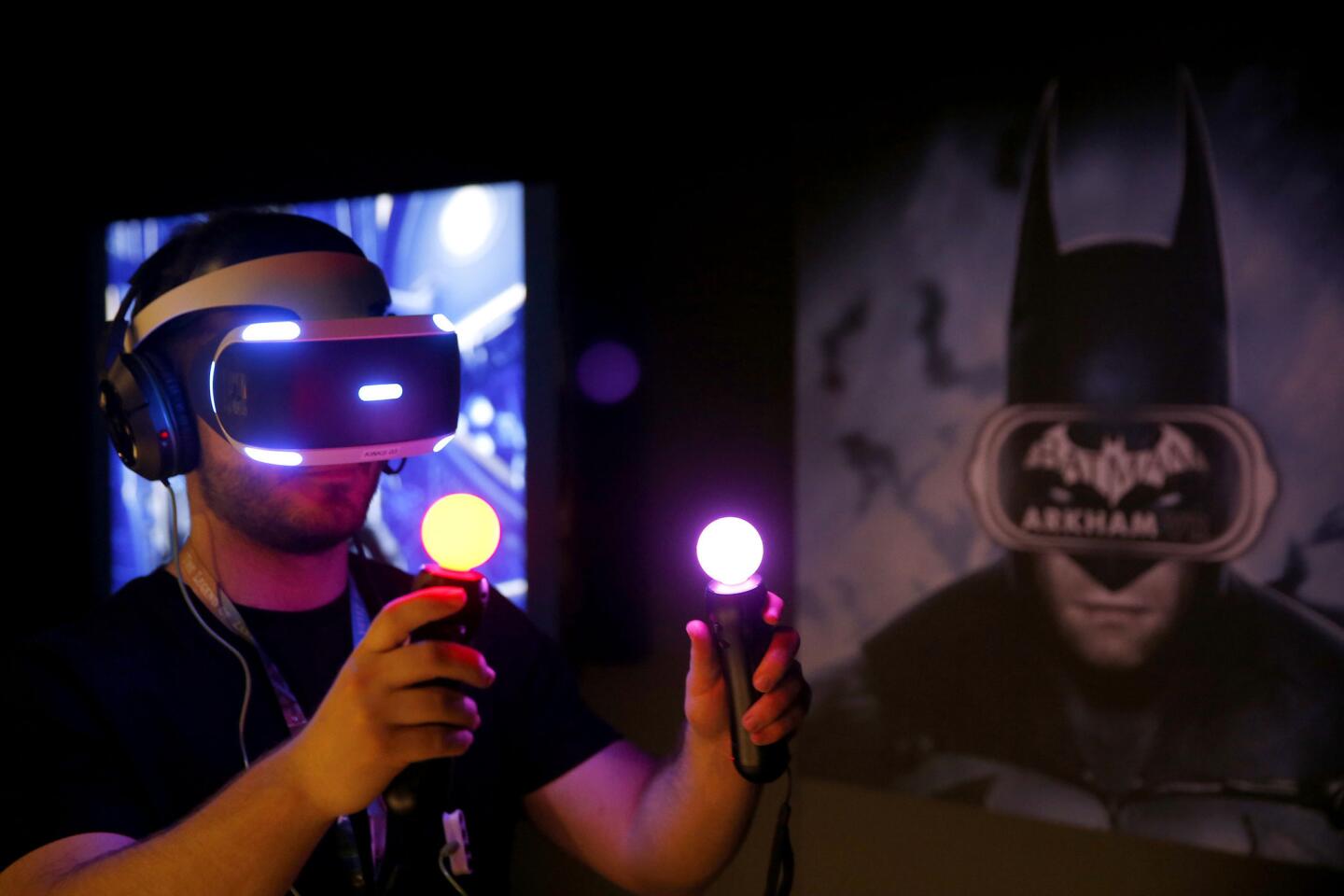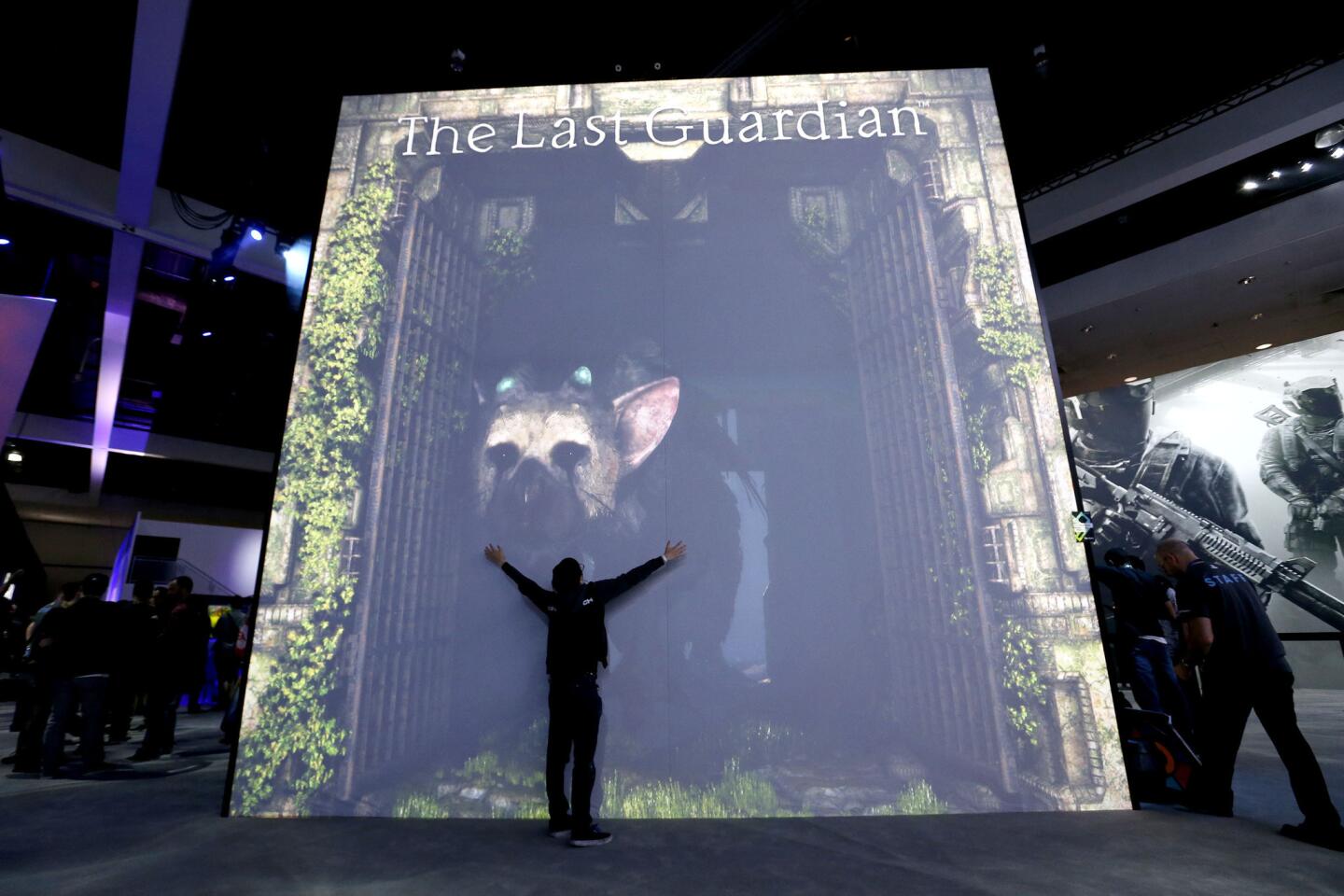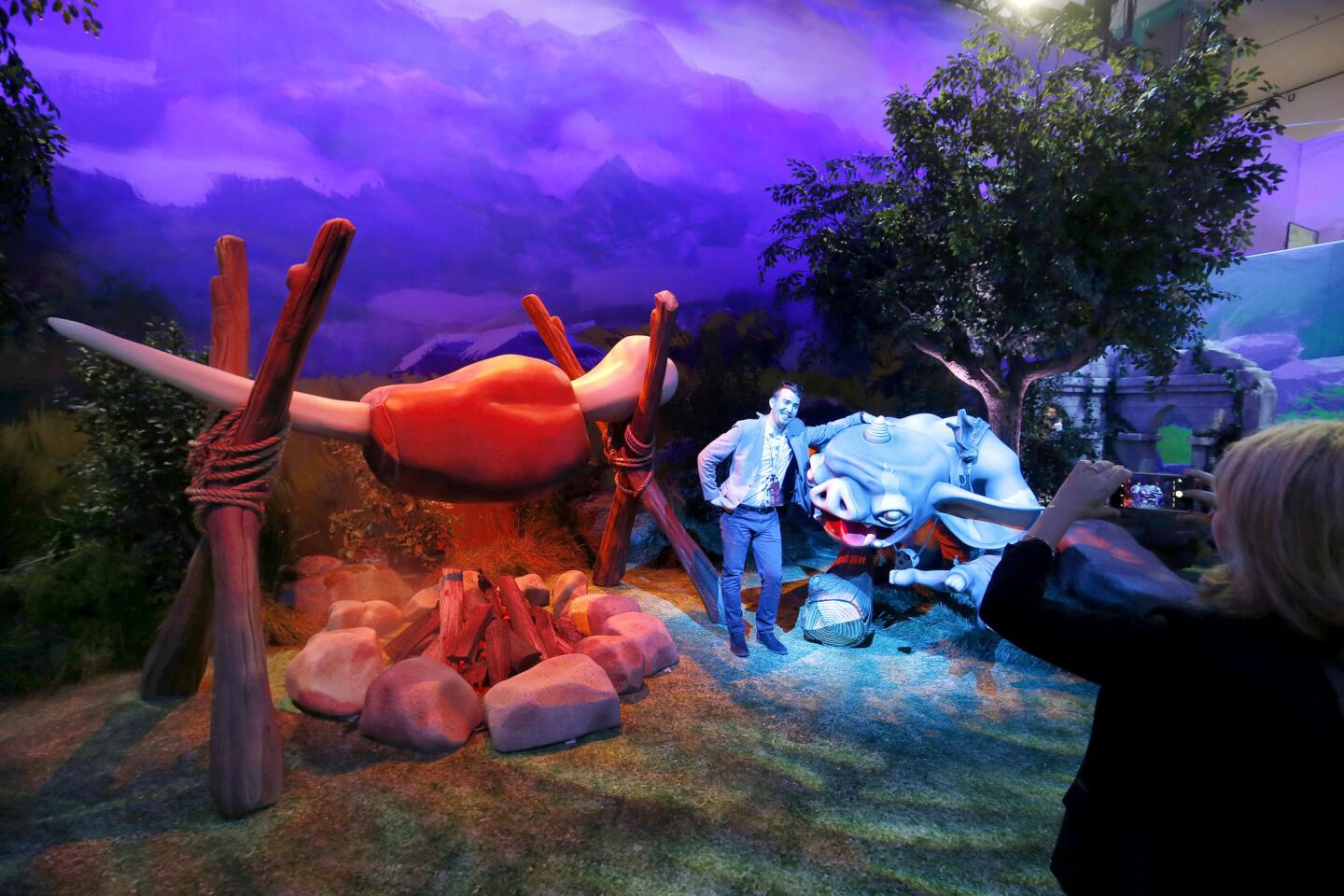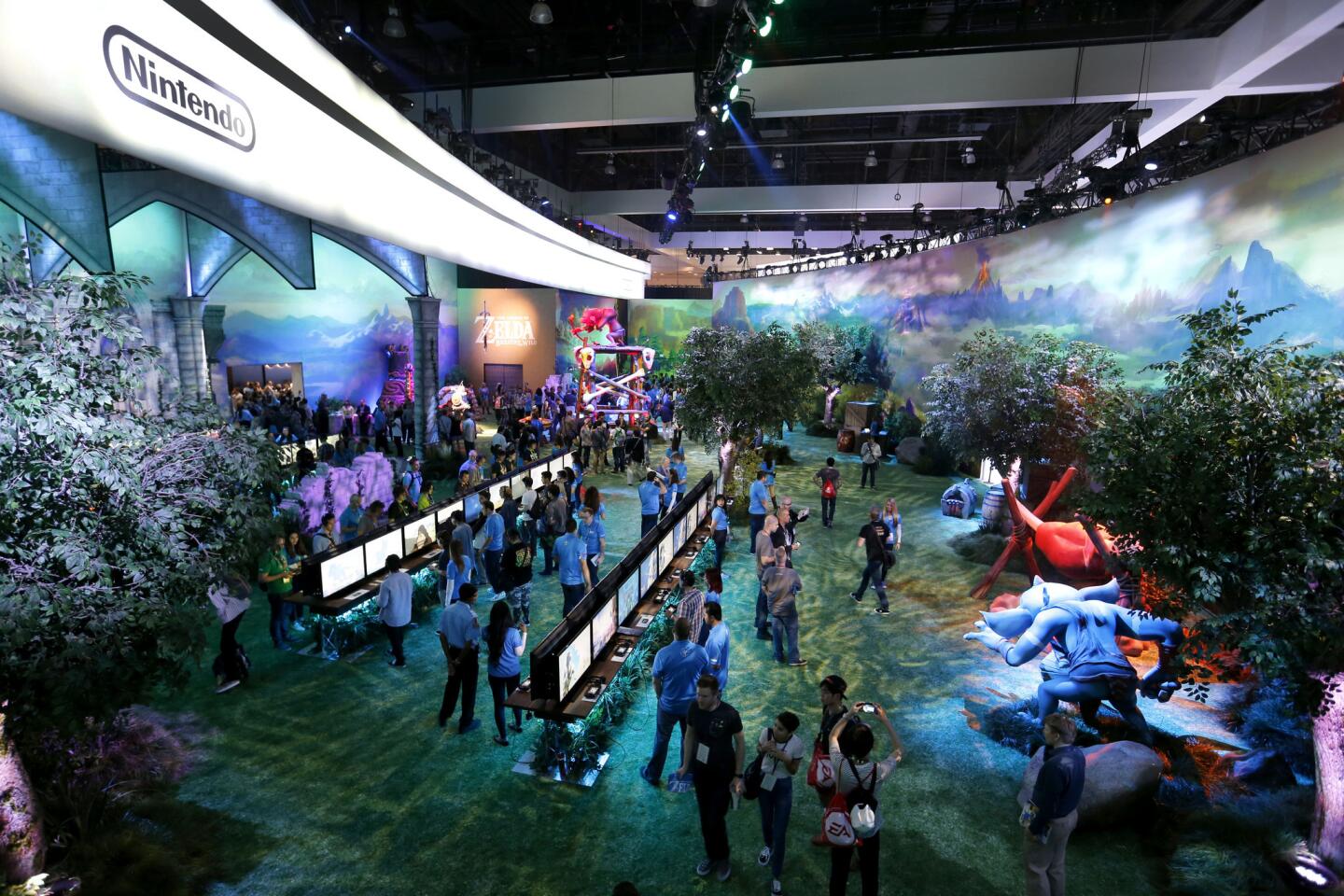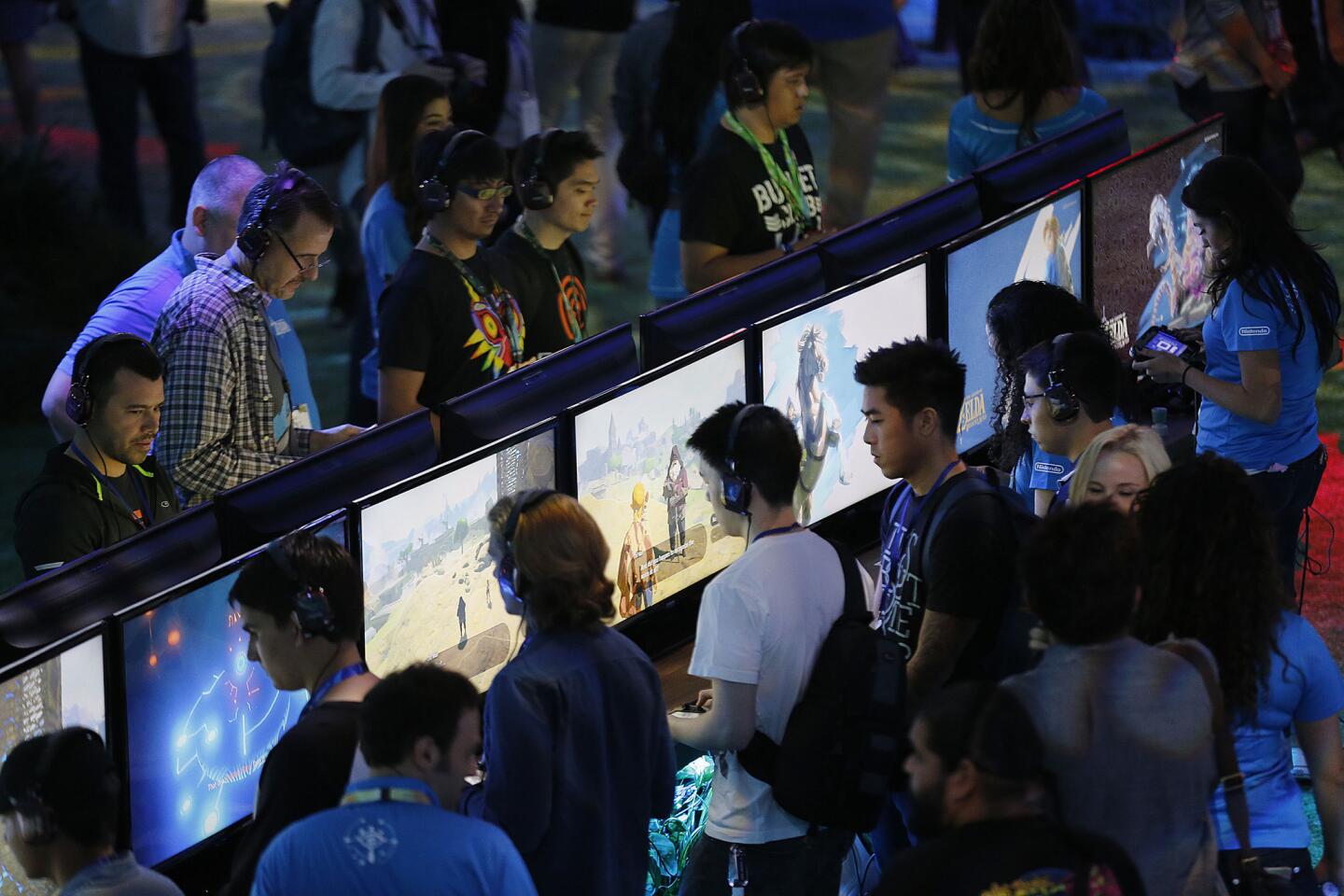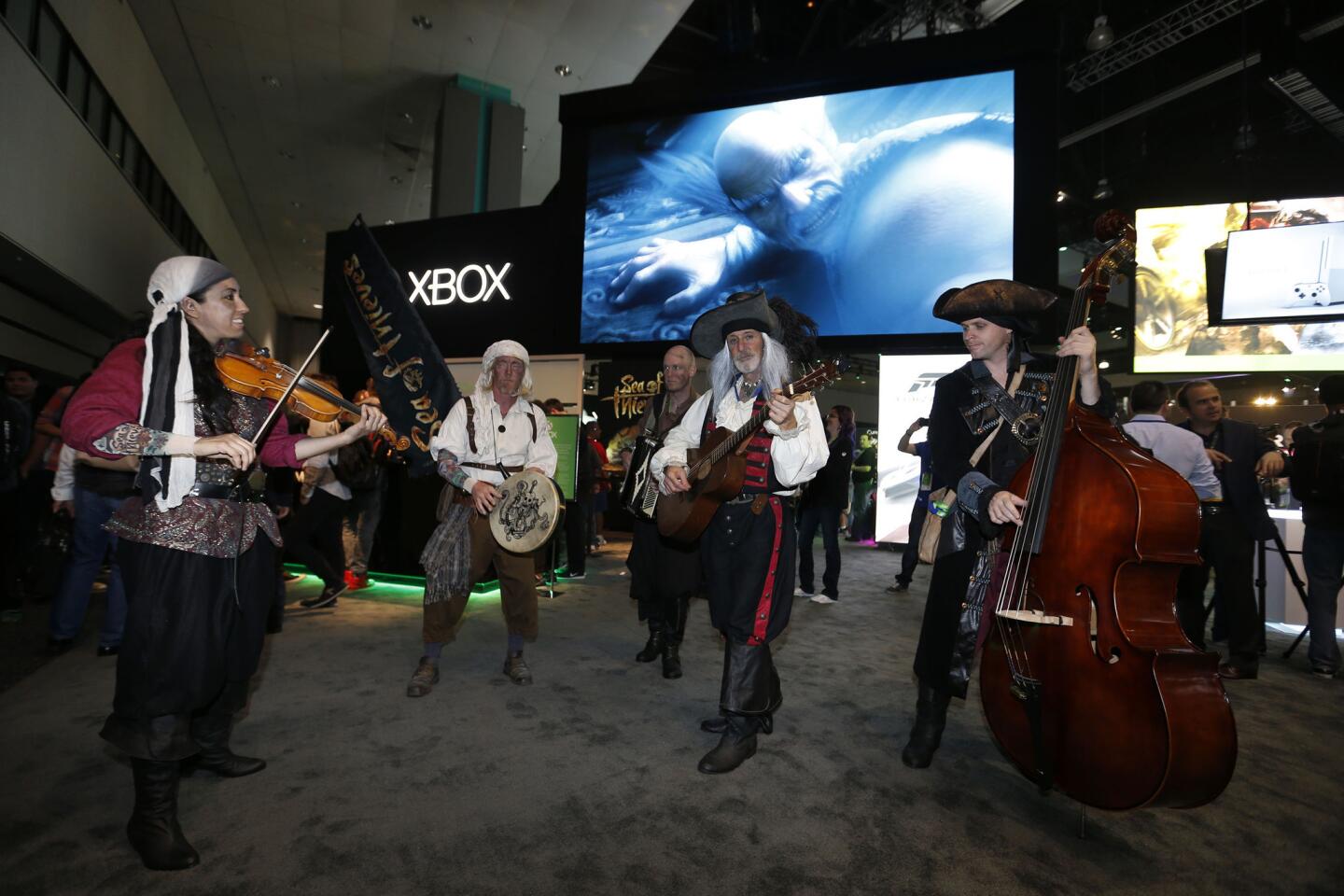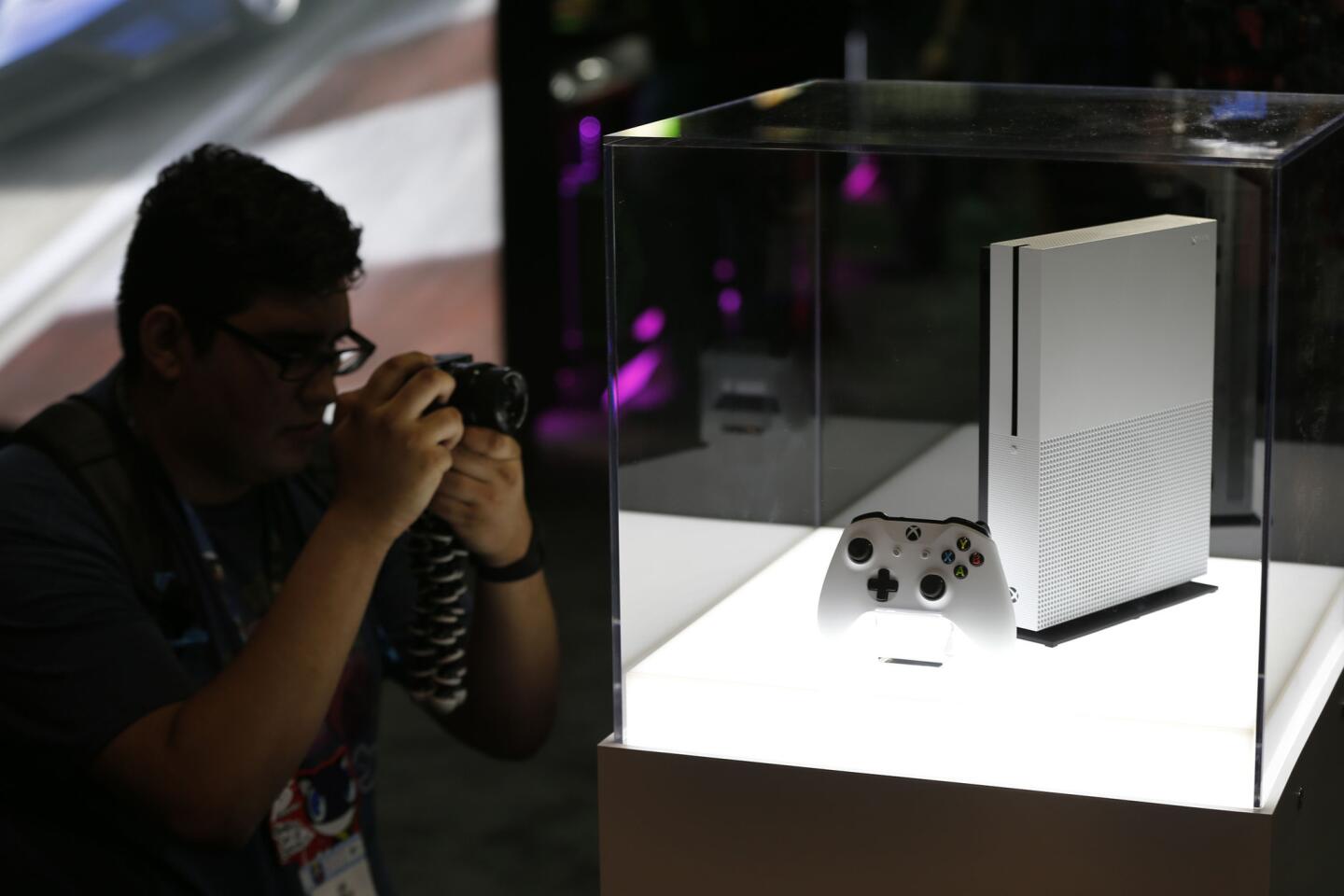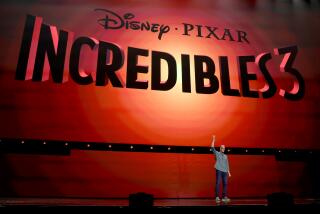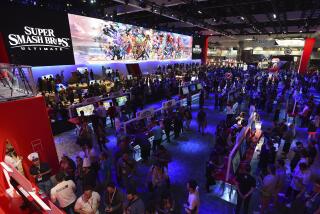Five things we learned from E3 2016
- Share via
Another year, another swath of technology announcements, celebrity appearances and video game reveals at the annual Electronic Entertainment Expo.
The world’s largest video game trade show hosted its 22nd event Tuesday through Thursday at the Los Angeles Convention Center. Throughout the week, major video game publishers such as Microsoft, Sony and Ubisoft held press conferences to reveal their upcoming projects while more than 70,000 investors, notable gamers and members of the press roamed the show floors to play exclusive game demos and meet with industry leaders.
In addition to dozens of video game title announcements, E3 2016 highlighted several shifts in direction for the gaming industry and was host to a number of surprises, good and bad. Here’s what you need to know:
New video game consoles are coming … sort of
The average shelf life for video gaming consoles is around six years. With that in mind, there was a reasonable expectation that E3 2016 would unveil the first scraps of information regarding the next generation of consoles. That didn’t really happen.
See the most-read stories in Entertainment this hour >>
Although Sony quietly confirmed the existence of the Playstation 4 Neo prior to E3, the console did not make an appearance at the event. On the other hand, Microsoft’s Xbox One Scorpio and Xbox One S models were officially revealed Monday.
However, despite several technical improvements such as 4K-resolution gaming on the Neo and Scorpio models, Microsoft and Sony’s upcoming consoles are not expected to offer exclusive video games and are more akin to redesigns than completely new hardware.
On the Nintendo front, the company’s mysterious Nintendo NX console was discussed in media interviews but failed to officially appear at the show. Although few NX details have been public, the console is set to launch in March 2017.
Watch the video game trailers from E3 2016
E3’s shifted focus toward gamers
Major publisher Electronic Arts eschewed E3 floor space this year to host its own off-site public event earlier in the week. Activision similarly lacked an official presence at the trade show and will instead host its own public “Call of Duty XP” event in September. The changes come as video game publishers continue to shift their focus toward fan-focused presentations as opposed to professional-oriented events such as E3.
Due to the absence of the industry’s leading publishers, it was clear that E3 would have to change its strategy to remain relevant in the eyes of the gamers who ultimately consume the show’s content.
Through a series of fan-focused live-stream shows, a free E3 Live 2016 public event and press conferences designed to entice players (rather than investors and reporters), E3 2016 made a concerted effort to appeal to its core audience: gamers. While the actual trade show was still closed to the public, 70,000 in-person attendees and hundreds of thousands of viewers tuning in on social media and live streams made a strong case for E3’s continued relevance.
Electronic Arts worked to mend its relationship with consumers
Electronic Arts’ E3 presentation was all about the fans. The publisher surrendered its prime show floor position to hold a free “EA Play” conference for the general public at the Novo, formerly known as Club Nokia.
The player-focused nature of the conference and its close proximity to the Los Angeles Convention Center served as a powerful gesture toward the largely closed off and industry-oriented E3. Support for smaller independent video game publishers was a major focus at the event, as were competitive community events for the publisher’s “Madden 17” football game. Of particular note was the remarkably positive response to the announcement that October’s “Titanfall 2” downloadable content would be free of charge.
These announcements seemed intended to build goodwill toward the wider gaming community in response to complaints the publisher has faced in recent years about its aggressive acquisitions and payment models.
Virtual reality continues to be an industry talking point
There were more companies producing content for or otherwise associating with virtual reality than any other gaming interest at E3. More than 30 publishers and developers both major and small held demo stations for a variety of virtual reality content including first-person shooters, roller-coaster simulations and pornography.
Virtual reality was a major talking point for at least a portion of many of the major press conferences throughout the week and lines to demo certain titles, such as Bethesda’s popular “Fallout 4,” were several hours long.
While it remains to be seen if it will catch on with the general public, the industry’s push for virtual-reality content is stronger than ever. If E3’s attendees’ interest in virtual reality is any indication, there’s a considerable market to be had for the burgeoning technology.
Sony won E3 2016
While Microsoft did reveal new iterations of its Xbox One console, its announcements resulted in more questions than answers. Aside from standout titles such as “Gears of War 4,” “Halo Wars 2” and increased connectivity between Xbox One consoles and Windows 10, Microsoft’s reveals made for a fairly tame press conference.
Meanwhile, Nintendo opted to forgo a press conference and its show floor was solely dedicated to its upcoming “The Legend of Zelda” title. While the game generated considerable hype, Nintendo’s relative silence at E3 is worrisome considering the Wii U console’s dismal financial success and lack of concrete information surrounding the company’s NX console.
Although Sony’s press conference concluded without information on the Playstation 4 Neo, a slew of new big-budget IPs, sequels to fan-favorite franchises such as “God of War” and a handful of interesting virtual-reality projects made the Japanese publisher E3’s standout show.
ALSO
Electronic Arts gets into e-sports, with $1-million ‘Madden’ championship
TV show based on ‘Skylanders’ video game coming to Netflix
Owners of professional video game teams in a battle of their own
More to Read
From the Oscars to the Emmys.
Get the Envelope newsletter for exclusive awards season coverage, behind-the-scenes stories from the Envelope podcast and columnist Glenn Whipp’s must-read analysis.
You may occasionally receive promotional content from the Los Angeles Times.
